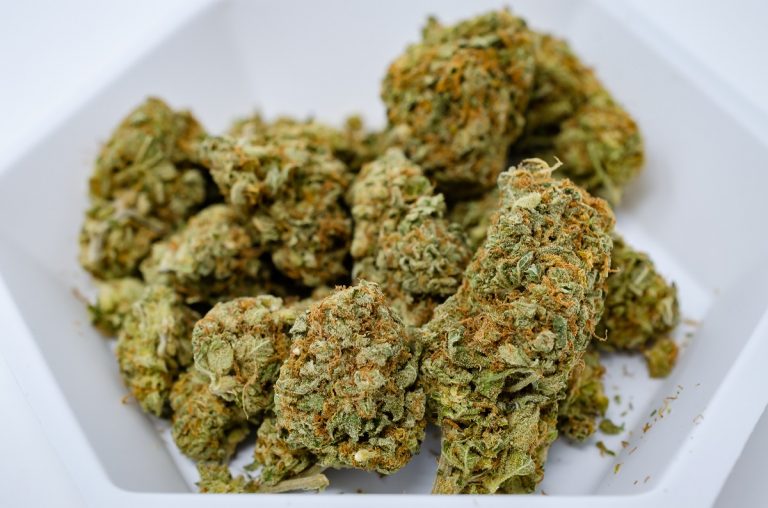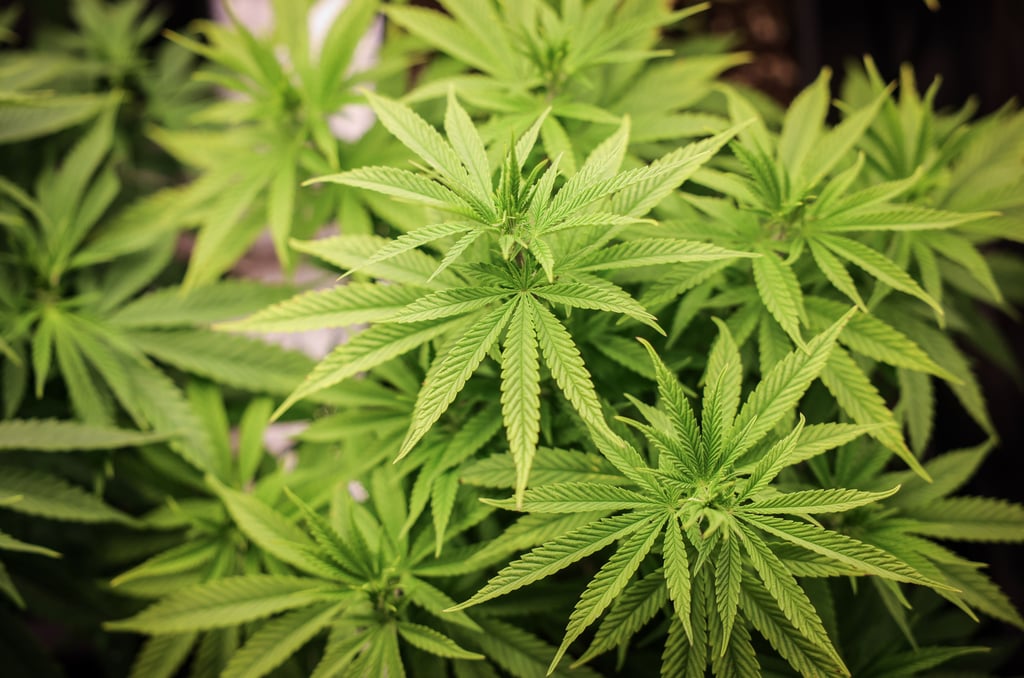
Pennsylvania's Bold Leap Toward State-Run Cannabis Retail
On May 5, 2025, Pennsylvania stands at a historic crossroads as its House Health Committee votes on a groundbreaking bill to legalize recreational marijuana through a state-operated retail system. This proposal, backed by over a quarter of the Democratic House caucus, aims to transform the commonwealth’s cannabis landscape by leveraging the existing infrastructure of the Pennsylvania Liquor Control Board. With neighboring states like Ohio, New York, and Maryland already reaping the benefits of legal adult-use markets, Pennsylvania’s move could redefine its economic and social fabric. This blog explores the intricacies of the bill, its potential impact, and the unique role of Pennsylvania Cannabis Online, Pennsylvania Cannabis Wholesale, and Pennsylvania Cannabis White Label in this evolving industry.
A State-Controlled Cannabis Vision
The proposed legislation, known as House Bill 2500, outlines a model where cannabis sales would mirror the state’s Fine Wine & Good Spirits stores, with the Liquor Control Board expanding to become the Liquor and Cannabis Control Board. This state-run system aims to ensure safety, regulation, and equitable distribution while avoiding the corporate consolidation seen in other states. The bill, introduced by Representatives Dan Frankel and Rick Krajewski, allows adults 21 and older to possess up to 30 grams of cannabis flower, 1,000 milligrams of THC in infused products, and five grams of concentrate. Retail sales would face a 13% tax (8% sales tax and 5% excise tax), with revenue funneled into a Cannabis Regulation Fund to support restorative justice, education, and community programs.
Unlike private-sector models in states like Colorado or California, Pennsylvania’s approach prioritizes control over product quality and pricing. The bill also includes provisions for social equity, such as expunging non-violent cannabis convictions and offering grants to minority-owned businesses. However, the state-store model has sparked debate, with critics like Responsible PA arguing it could limit opportunities for small businesses and favor large operators. Despite opposition, the bill’s passage through the House Health Committee signals strong momentum, with a floor vote expected soon.
Economic Promise and Regional Context
Pennsylvania’s cannabis market is already robust, with its medical marijuana program generating $1.7 billion in sales in 2024 alone, supported by 441,000 active patients and 181 dispensaries. Legalizing recreational cannabis could add $4.2 billion to the state’s economic output and $2.6 billion to its GDP, according to a 2024 FTI Consulting analysis. Each licensed dispensary is projected to contribute $8 million to GDP and $6 million in local worker income. Governor Josh Shapiro, a vocal supporter, estimates $1.3 billion in revenue over five years, including $509.5 million in one-time licensing fees and $27 million in first-year taxes.
The urgency of legalization is underscored by Pennsylvania’s position as an “island of prohibition” surrounded by states with legal markets. Ohio’s recent legalization and Maryland’s expanding industry have left Pennsylvania lagging, with consumers crossing borders to spend millions. Shapiro’s frustration, famously expressed as being “sick and tired of losing to friggin’ Ohio,” reflects the economic imperative to act. The bill’s state-run model, while unique, draws inspiration from New Hampshire’s ongoing exploration of similar systems, though no other state has fully implemented this approach for cannabis.
The Role of Pennsylvania Cannabis Online
As Pennsylvania navigates this transition, Pennsylvania Cannabis Online emerges as a critical player in the digital realm. This platform could serve as a centralized hub for state-run cannabis sales, offering consumers a secure, regulated way to purchase products. By integrating with the Liquor and Cannabis Control Board, Pennsylvania Cannabis Online would ensure compliance with age restrictions, product testing, and tax collection. The platform could also educate consumers about safe consumption, strain varieties, and legal limits, addressing public health concerns raised by skeptics like Senator Tracy Pennycuick, who worries about impaired driving and youth access.
An online portal would streamline access for rural residents, who may be far from physical stores, and provide real-time inventory tracking to prevent shortages. With the bill’s emphasis on social equity, Pennsylvania Cannabis Online could prioritize products from minority-owned growers and processors, amplifying their visibility in a competitive market. By leveraging technology, the state could set a precedent for how digital infrastructure supports a regulated cannabis industry, potentially influencing other states to follow suit.

Pennsylvania Cannabis Wholesale: Powering the Supply Chain
Behind the retail facade, Pennsylvania Cannabis Wholesale would play a pivotal role in ensuring a steady supply of high-quality cannabis. The bill allows existing medical marijuana growers to apply for recreational cultivation licenses, though at a steep $40 million cost for dual-use permits. To foster competition, it also introduces 100 new cultivation and 100 new processing licenses, each priced at $1.5 million, opening doors for smaller entrepreneurs. Pennsylvania Cannabis Wholesale could act as a regulated intermediary, connecting state-licensed growers with dispensaries and ensuring fair pricing.
The wholesale market is critical to preventing the monopolies seen in other states, where multi-state operators dominate. By prioritizing local growers and enforcing strict quality standards, Pennsylvania Cannabis Wholesale would support the bill’s goal of equitable market access. The 5% excise tax on wholesale transactions, already in place for medical cannabis, would generate additional revenue for the Cannabis Regulation Fund, reinforcing the state’s commitment to reinvesting in impacted communities.
Pennsylvania Cannabis White Label: Branding the Future
The concept of Pennsylvania Cannabis White Label introduces an innovative angle to the state-run model. White-labeling allows smaller producers to market their products under a state-approved brand, reducing barriers to entry for new businesses. This approach aligns with the bill’s social equity provisions, enabling minority and women-owned enterprises to compete without the need for extensive marketing budgets. Pennsylvania Cannabis White Label could standardize packaging, ensuring compliance with labeling requirements that warn against driving impairment and child access.
By offering a white-label framework, the state could create a cohesive brand identity for Pennsylvania-grown cannabis, boosting consumer trust and market appeal. This strategy would also counter concerns from advocates like Chris Goldstein, who warn against corporate consolidation stifling competition. A state-backed white-label program could empower local entrepreneurs to thrive in a market projected to grow exponentially, while maintaining the integrity of Pennsylvania’s regulatory vision.
Challenges and the Path Forward
Despite its promise, the bill faces hurdles in the Republican-controlled Senate, where senators like Frank Farry express concerns about public safety and driving impairment. The state-run model also raises federal risks, as cannabis remains illegal under U.S. law, potentially exposing state employees to liability. Critics argue that privatizing sales, as proposed by Senators Dan Laughlin and Sharif Street, would better align with industry preferences and reduce federal conflicts.
Yet, the bill’s focus on restorative justice, economic equity, and public health positions it as a progressive blueprint. With bipartisan support growing—evidenced by co-sponsors like Representative Aaron Kaufer—and public opinion favoring legalization (63% in a 2024 poll), Pennsylvania is poised to lead with a model that balances control and opportunity. As the House floor vote looms, the commonwealth’s cannabis future hinges on lawmakers’ ability to bridge divides and seize this moment.
A Historic Opportunity
Pennsylvania’s vote on a state-operated cannabis retail system marks a defining moment. By integrating Pennsylvania Cannabis Online, Pennsylvania Cannabis Wholesale, and Pennsylvania Cannabis White Label, the state can build a regulated, equitable, and innovative market. The bill’s passage could unlock billions in economic potential, right past wrongs, and position Pennsylvania as a trailblazer in cannabis policy. As Harrisburg debates, the eyes of the nation watch, eager to see if the Keystone State will light the way forward.
Discover D Squared WorldWide, your premier partner in Pennsylvania Cannabis Wholesale! Our premium, locally-sourced cannabis products empower state-run dispensaries with unparalleled quality and consistency, aligning with Pennsylvania’s visionary House Bill 2500. From cultivators to retailers, we ensure fair pricing and a robust supply chain, supporting social equity and minority-owned businesses. Elevate your inventory with our trusted wholesale solutions, designed to meet the growing demand of Pennsylvania’s $4.2 billion cannabis market. Join the revolution and strengthen your brand with D Squared WorldWide. Schedule a call today to explore exclusive wholesale opportunities and drive your success!
Reference:
1. Ashare, R., Turay, E., Worster, B., Wetherill, R., Bidwell, L., Doucette, A., … & Meghani, S. (2023). Social determinants of health associated with how cannabis is obtained and used in patients with cancer receiving care at a cancer treatment center in pennsylvania. Cannabis. https://doi.org/10.26828/cannabis/2023/000151
2. Crawford, N. (2023). Lost boys, invisible men: racialized policy feedback after marijuana legalization. Public Administration Quarterly, 47(3), 327-346. https://doi.org/10.37808/paq.47.3.5
Hannah, A., Mallinson, D., & Azevedo, L. (2022). Maximizing social equity as a pillar of public administration: an examination of cannabis dispensary licensing in pennsylvania. Public Administration Review, 83(1), 144-162. https://doi.org/10.1111/puar.13521



